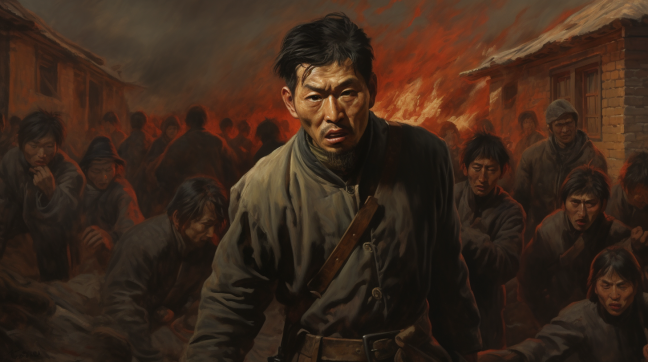From Obscurity to Notoriety
Zhao Zhihong, often dubbed the “smiling killer” due to his demeanor during court appearances, emerged from relative obscurity to become one of China’s most notorious serial killers. Active during the 1990s and early 2000s in Inner Mongolia, Zhao’s crimes encompassed a terrifying range of violent offenses, including multiple rapes and murders.
“Zhao Zhihong’s case is a dark chapter in China’s criminal history, highlighting both the brutality of his actions and systemic issues in the judicial process,” stated criminologist Liu Wei.
A String of Violent Crimes
Zhao’s criminal activities began in the early 1990s. Over the course of a decade, he committed a series of rapes and murders, with his victims ranging from young women to elderly individuals. His modus operandi often involved brutal acts of violence, making him a figure of dread within the communities he targeted.
“His ability to evade capture for years only added to the fear and mystique surrounding him,” observed journalist Yang Feng.
The Miscarriage of Justice
Zhao’s case is not just notorious for his crimes, but also for the significant miscarriage of justice associated with it. Before his eventual capture, another man, Huugjilt, was wrongfully convicted and executed for one of the murders Zhao later confessed to. This wrongful execution sparked national outrage and led to posthumous exoneration for Huugjilt.
“The tragedy surrounding Huugjilt’s wrongful execution underscores the profound implications of judicial errors, especially in a system with capital punishment,” noted legal analyst Xu Jia.
Capture and Confession
In 2005, Zhao Zhihong was finally apprehended by law enforcement. Once in custody, he confessed to a series of crimes, bringing closure to multiple unsolved cases. His detailed accounts of the offenses provided chilling insights into his actions and mindset.
“Zhao’s confessions were both a relief, in terms of closing cases, and a horror, in terms of understanding the depth of his depravity,” commented police officer Li Chen.
Judicial Outcome and Public Reaction
Zhao was sentenced to death in 2015, a decade after his capture, and was executed the same year. His trial and subsequent execution were widely covered in the Chinese media, reigniting debates about the death penalty, judicial reforms, and the need for systemic improvements in criminal investigations.
“Zhao Zhihong’s case is a grim reminder of the dual challenges in criminal justice: ensuring that the guilty are punished while safeguarding the innocent,” said sociologist Zhang Hui.
A Legacy of Questions and Reforms
The case of Zhao Zhihong, beyond its immediate horror, spurred discussions about judicial reforms in China. The wrongful conviction of Huugjilt became a catalyst for calls to improve the judicial system, ensuring greater accuracy and fairness.
“While Zhao’s reign of terror was undoubtedly tragic, the subsequent focus on judicial reform might be seen as a silver lining, emphasizing the importance of continual improvements in the justice system,” concluded legal scholar Wang Luo.
